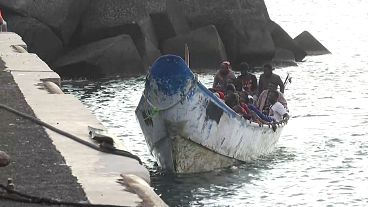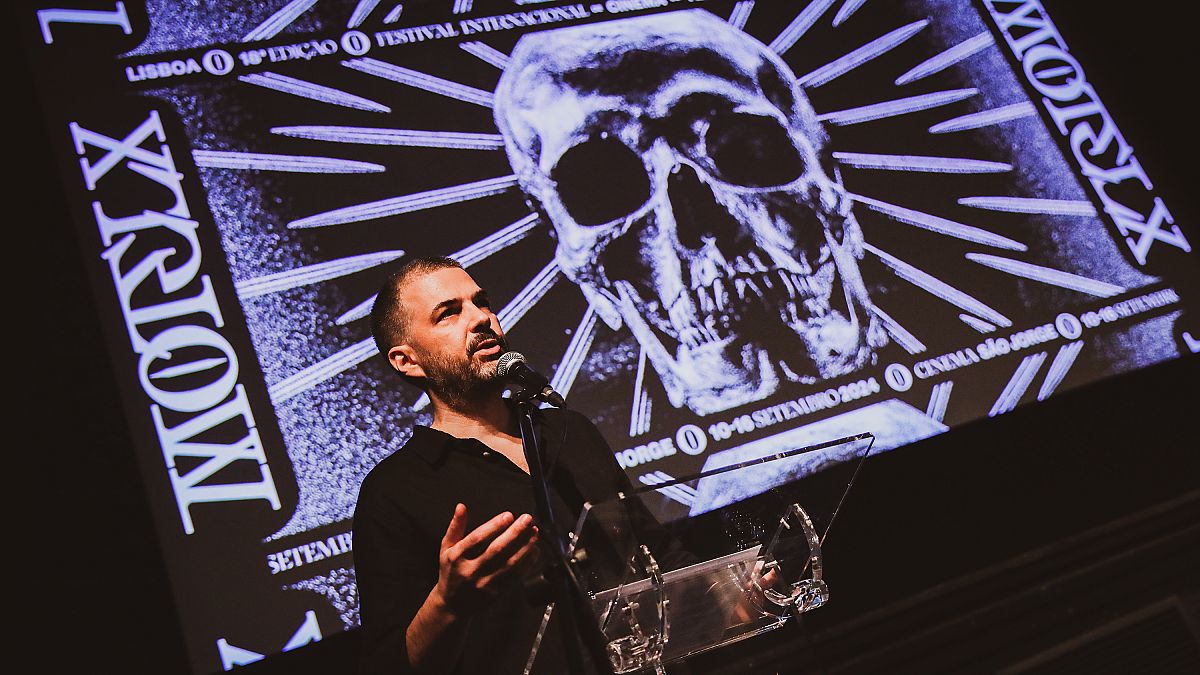This Tuesday sees the opening of the festival that, for fans of the genre, has become synonymous with horror. Among the novelties this year is a retrospective of films banned by censorship in Portugal.
MOTELX, which kicks off this Tuesday and brings horror to Lisbon for a week comes of age with this 18th edition. It's a milestone that makes Pedro Souto proud, one of the founders and directors (along with João Monteiro) of this festival 100% dedicated to horror cinema, which has been bringing steadily increasing numbers to the São Jorge cinema. Not only has the audience grown, but also the number of Portuguese films in the various sections: "Over the years, we've received more than 1,000 Portuguese films," says Souto. "If, in the early years, the offer of Portuguese cinema was residual, it began to grow very strongly, especially from the third year onwards, when the prize for the best Portuguese short film was created," he adds.
The festival opens with Speak no Evil (USA), by James Watkins, a remake of the Danish film that came out of the 2022 edition of MOTELX with the top prize, and closes with The Surfer (Australia/Ireland), directed by Lorcan Finnegan and with Nicholas Cage in the lead role.
If we weren't talking about a horror festival, Souto highlights a "pentagram" made up of five films: the chilling thriller by German director Tilman Singer, Cuckoo, set in a resort in the Alps full of dark secrets, with Hunter Schafer, actress from the series 'Euphoria'; the Canadian film In a Violent Nature, by Chris Nash, Oddity, which comes from Ireland by Damian McCarthy and promises plenty of scares, as well as MaXXXine by Ti West (USA). And lastly, but by no means least, The Substance, a body horror by French director Coralie Fargeat, with Demi Moore and Margaret Qualley in the lead roles. The film won the Best Screenplay award at this year's Cannes Film Festival.
In addition to the aforementioned Oddity, five other feature films will enter the festival's main competitive section, where they will compete for the Meliès d'Argent for best European horror film. The winner gains entry to the competition for the Meliès d'Or, which will be awarded at the Sitges festival next month.
Des Teufels Bad (Austria/Germany), by Veronika Franz and Severin Fiala, Fréwaka (Ireland), by Aislinn Clarke, Im Toten Winkel (Germany) by Ayse Polat, Planète B (France/Belgium), by Aude Léa Rapin with Adèle Exarchopoulos in the lead role, and She loved blossoms (Greece/France) by Yannis Veslemes complete the Meliès d'Argent nominees.
From Room Service to Lost Room... sections for all tastes
But it's in the 'Room Service'** section, dedicated to films from the four corners of the world and presented out of competition, that some of this year's most eagerly awaited films are to be found.
Another highlight from the festival's management is the most recent and unexpected film by American brothers David and Nathan Zellner, Sasquatch Sunset (executive produced by Ari Aster, director of Hereditary and Midsommer), a bizarre and rigorous portrait of the daily life of a family of creatures. Also premiering in Portugal are Vampire humaniste cherche suicidaire consentant, by Ariane Louis-Seize (Canada) and the Anglo-American co-production Your Monster, by Caroline Lindy.
In the 'Quarto Perdido' section, dedicated to Portuguese horror, the highlight is A Culpa (1980), a film that marked the cinema debut of composer and conductor António Victorino D'Almeida (guaranteed to be present at the screening) and one of the first examples of fiction about the colonial war after the 25th of April. The journey through the country's genre filmography has another stop in As Desventuras de Drácula Von Barreto nas Terras da Reforma Agrária (The Misadventures of Dracula Von Barreto in the Lands of Agrarian Reform) (1977), a short film developed by the PCP's Cinema Cell.
Honouring the revolution
Since we're talking about the revolutionary period in Portugal, it's impossible to not discuss the 2024 edition without mentioning the For the Nation's Sake section, dedicated to films banned by censorship in Portugal before the 25 April, 1974 revolution, with which the festival wanted to honour the 50th anniversary. The organisers present us with a batch of five films made in the 1960s and 1970s, some with a strong erotic slant, such as the Italian ll Demonio (1963), directed by Brunello Rondi.
The programme reflects the good health of genre cinema in Portugal and around the world. For Pedro Souto, "the trend is cyclical and we're in a cycle of horror cinema's popularity, thanks in no small part to the American box-office". "But regardless of what Hollywood does, independent cinema produces a good number of genre films every year, and festivals also exist to publicise these films that are more difficult to access," he adds. It's a role that MOTELX is taking on again this year, as it has been doing since 2007.














